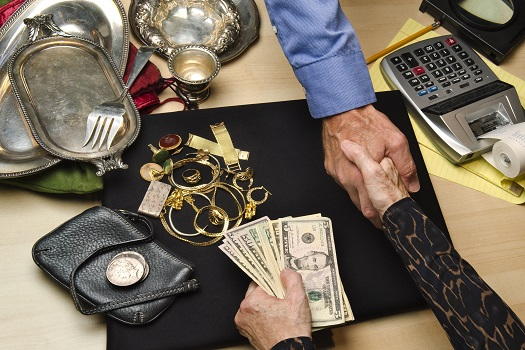Can You Buy & Sell Gold in Different Countries?
Collectors and individuals who want to earn a little cash often take advantage of various investment strategies, including gold. There are plenty of businesses and individuals around the world looking for gold every day, giving you a larger market for buying and selling. However, there are regulations when it comes to buying and selling gold, so you should do your research. The precious metals experts from First National Bullion and Coin, the best place to buy gold in Scottsdale, offer the following tips to use, including information on whether you can buy gold in one country and sell it in another.
Is It Legal?
Purchasing gold and selling it in a foreign country is legal, provided you follow all the applicable requirements and laws. You need to abide by your country’s rules as well as those of the foreign nation in which you choose to purchase or sell gold. There are various online portals and precious metal dealer communities you can join to learn more about taxes, licensure, and regulations pertaining to the import and export of gold.
Online Selling Options
To prevent issues, look into businesses and organizations that will allow you to set up dealer pages for a small fee. You can also become a member and buy gold from other dealers in these communities. These companies handle most of the legalities and provide pertinent information and forms. Another benefit of using these online selling options is that you can attract serious legal buyers and sellers and protect your money if a transaction goes wrong.
Traveling with Gold
Just as with cash, you’ll need to declare specific value amounts before entering another country with gold. Therefore, if you choose to take gold from one country to another, there are international limits you cannot exceed. Check with customs and other international agencies to see what amount of gold must be declared and how much of the precious metal you can take without filing a report. Most information is accessible with a little research, or you can speak with a customs officer or administrator to receive pertinent information.
Taxes & Filing Requirements
If you’re a dealer, you’ll need to report large transactions, whether customers pay with cash, checks, or cashier’s checks. Keep in mind your bank will report these payments to the IRS and other tax agencies, so you should be honest about your sales. Some customers will split their payments up for large purchases. However, you have a legal responsibility to report sales that total more than $10,000 in one day, even if they’re divided into separate deals. When transactions are related, they trigger the reporting requirements. If your customers make online purchases on different days, the transactions may not trigger the reporting requirement. As a dealer, you’re required to submit documents such as Form 8300, even if your customers don’t. Failing to follow the rules could cause you to lose your license, pay hefty fines, and even be sentenced to jail in some instances.
For information on any aspect of buying, selling, and owning precious metals, call on the experts at First National Bullion and Coin. If you’re looking for the best Scottsdale gold and bullion dealer, you can trust our reputation. We’re a boutique precious metals firm staffed only by experienced professionals. For expert guidance on the smartest ways to buy and sell precious metals, call us today at 480-546-8928.
The statements made in this blog are opinions, and past performance is not indicative of future returns. Precious metals, like all investments, carry risk. Precious metals and coins may appreciate, depreciate, or stay the same in cash value depending on a variety of factors. First National Bullion does not guarantee, and its website and employees make no representation, that any metals for sale will appreciate sufficiently to earn the customers a profit. The decision to buy, sell, or borrow precious metals and which precious metals to purchase, borrow, or sell are made at the customer’s sole discretion.


